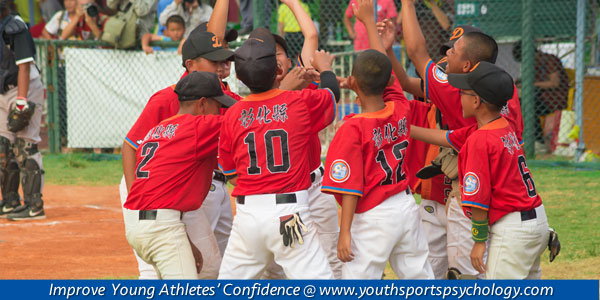The Benefits of a Mental Game
What’s more important in youth sports?
A strong mental game or physical talent?
Linda Crum, executive director of Positive Coaching Alliance Colorado, says the mental game is more important—and gets more important as kids start playing at elite levels.
At the younger stages, she says, the mental game likely accounts for about 50% of a child’s performance. As young athletes start competing at elite levels, about 90% of the game is mental, she says.
Crum knows what she’s talking about. She is a former Division I volleyball coach, currently coaches club volleyball, and is a mother of three youth athletes. She’s been coaching kids of all ages for more than 20 years.
In spite of the advantages of mental game training, lots of kids get scared when you talk about it, she says. They think it’s much more complicated than it really is. The key, she says, as coaches and parents, is to keep it simple.
For example, many kids start their sports careers in soccer. If they see a child who is bigger or faster, they tell themselves, “I can’t be as big or fast,” she says. “We need to transform that thinking, and focus on ‘I can work hard and keep fighting.’”
It’s all about helping them reframe how they’re thinking. If their “self-talk” is negative, we want to help them make it positive.
Another important part of the mental game is helping kids with mistakes.
“We want kids to make mistakes,” Crum says.
Why? Because they learn from them. And because everyone makes mistakes, it’s critical to be able to move on quickly after making them during a game.
After the game, coaches and parents can talk about mistakes.
“We want them to make mistakes so they can discuss them….’I didn’t hold my arm high enough’ for example,” she says.
But it’s also important to let kids know what they can control. They can control how they think. They can control their effort. In other words, they can control their mental game, Crum says.
“Effort is a big part of the mental game—how we move onto the next play. Their ability to move onto what will happen next is a critical mental game aspect.”
Related Articles on Kids’ Mental Game:
- The Link Between Sports Kids’ Mental Game and Mental Health
- Strong Mental Game Helps Pro Basketball Player Thrive
- This Pro’s Mental Game Helped Her Overcome Physical Limitations
*Subscribe to The Sports Psychology Podcast on iTunes
*Subscribe to The Sports Psychology Podcast on Spotify
Improve Your Mental Game From Anywhere In The World

We’re certain that, as a parent, you want to help your child develop confidence and discipline in sports and life. And as a sports parent, you’d love for your children to reach their potential in sports. But encouraging your child to strive for greatness without pressuring them can be a challenge.
You can get expert mental coaching with us from anywhere. Meet with us via Zoom, Skype, FaceTime or phone call. With today’s video technology, we are able to connect with athletes and coaches all over the globe.
Call Us Today to Schedule Your Free 15-Minute Session.
Find Out How Your Athlete Can Benefit From One-on-One Mental Coaching!

